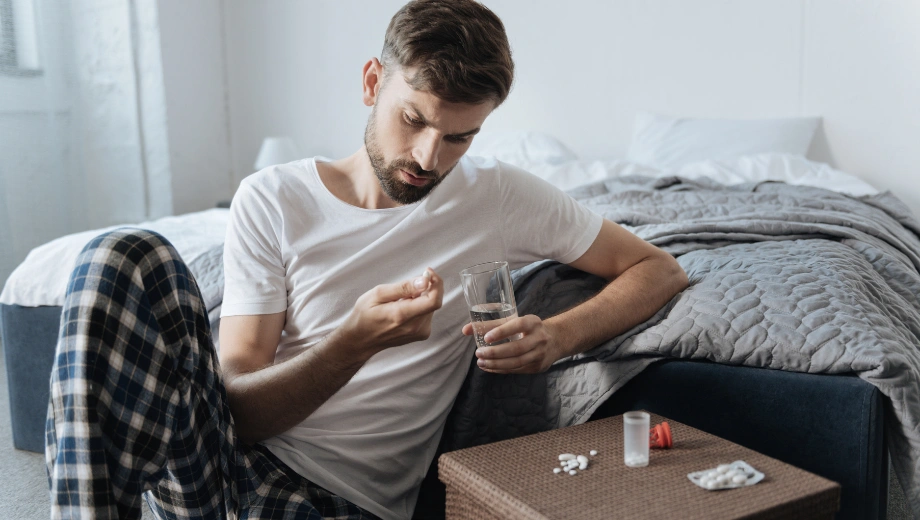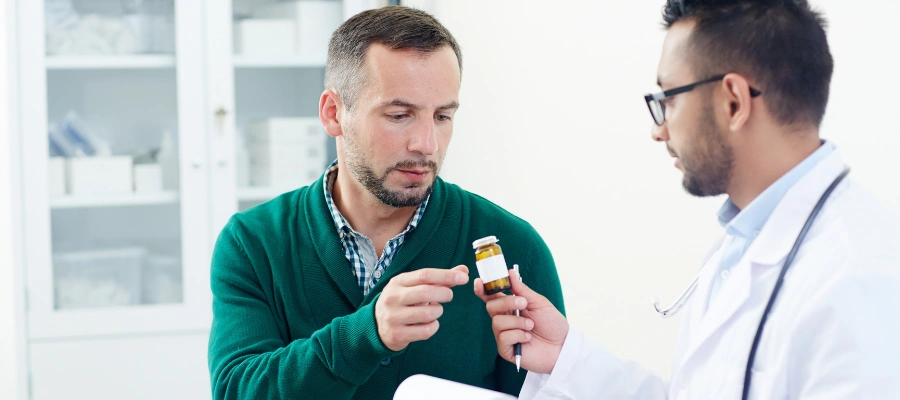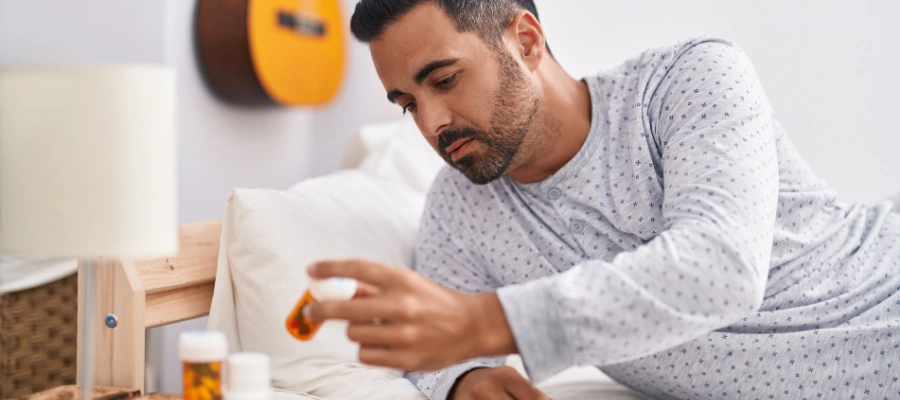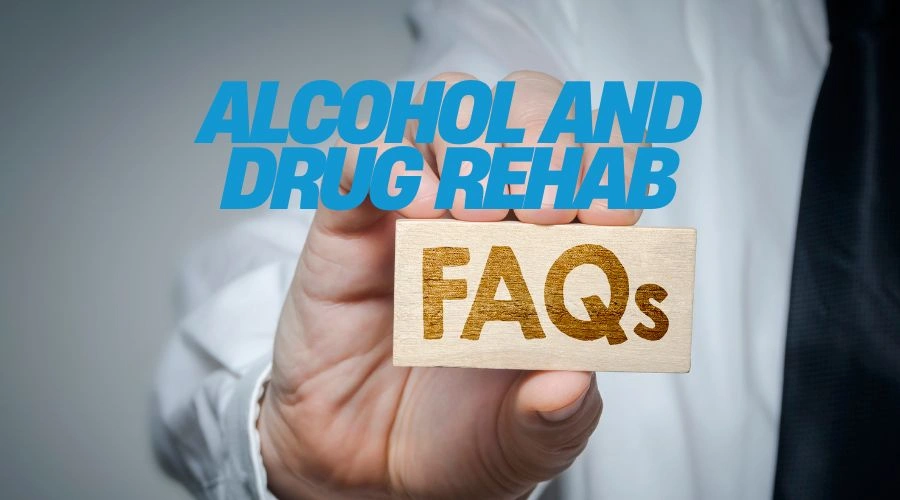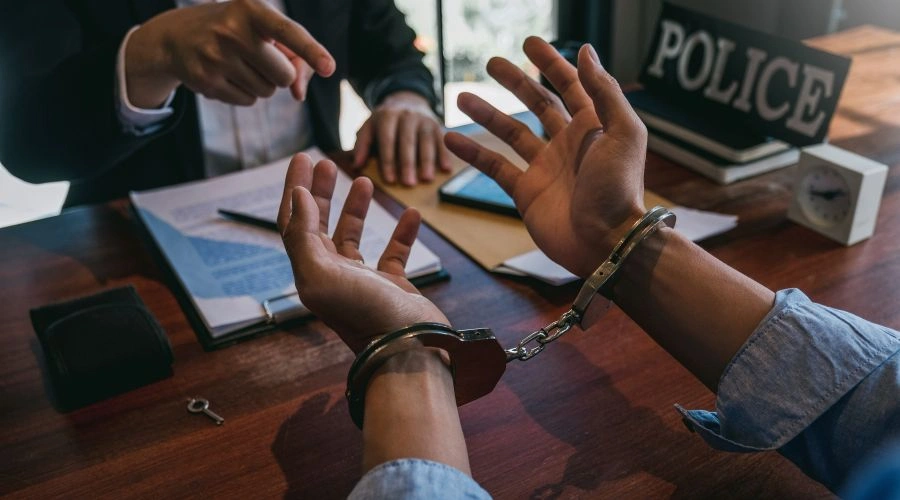The Role of Antidepressants in Substance Abuse Recovery
Antidepressants have long been used to treat major depressive disorder (MDD) and other mental health disorders. However, they are not strictly used to treat depressive symptoms. Research and the personal experience of many show that the same prescription medications that help with depression can aid the treatment of other disorders, too.
So, can antidepressants help with addiction? When and why are they used in addiction treatment? Icarus Wellness and Recovery provides effective mental health and addiction treatment. We take an individualized, whole-person approach, which includes addressing underlying concerns related to substance abuse.
Let’s go over what you need to know about when antidepressant medications may help a person facing addiction. Remember that the right path to recovery can look different from person to person; the goal is to help you achieve overall well-being.
Get Effective Detox and Rehab Options at Icarus
Can Antidepressants Help Addiction?
Antidepressants can be used to help treat a range of mental health conditions. These include but aren’t limited to:
- Mood disorders (e.g., major depressive disorder, bipolar disorder).
- Post-traumatic stress disorder (PTSD).
- Anxiety disorders (e.g., generalized anxiety disorder).
- Obsessive-compulsive disorder (OCD).
- Bulimia nervosa.
Many people experiencing substance abuse will have one or more co-occurring disorders. In this case, it’s ideal to treat both the addiction and co-occurring mental disorders. This is just one example of how antidepressants may be used to help people with addiction.
Benefits of Treating Co-Occurring Disorders
Having a mental health condition is a risk factor for the development of addiction. This means that, if you have a disorder like depression, you’re statistically more likely to develop a substance use disorder. Treating these co-occurring disorders can:
- Lead to better psychiatric functioning.
- Increase the chance of successful treatment of both disorders.
- Support reduced or discontinued use of substances.
- Improve your quality of life.
Treating co-occurring disorders may also reduce the chance of medication interactions (some medications should not be taken with alcohol or other drugs), among other benefits.
Types of Antidepressant Medication
Most antidepressants prescribed in the modern-day fall into two general categories:
- Selective serotonin reuptake inhibitors (SSRIs).
- Serotonin norepinephrine reuptake inhibitors (SNRIs).
Other antidepressants, including tricyclic antidepressants (TCAs) and monoamine oxidase inhibitors (MAOIs), are used less often. The right medication for one person will differ from that of another.
Get Accredited Treatment Programs at Icarus
Potential Side Effects of Antidepressant Medications
While antidepressants are effective for many people, everyone is different. Two people taking the same antidepressant medication will not necessarily respond to it the same way. Additionally, the specific side effects associated with each medication differ.
Even if two medications fall into the class of antidepressants, it does not mean that they’ll have the same side effects. For example, the side effects of wellbutrin vs. celexa are dissimilar, but they’re both common antidepressant medications.
Keeping that in mind, possible adverse effects can include but aren’t restricted to:
- Dry mouth.
- Changes in sleep patterns.
- Diarrhea.
- Constipation.
- Weight gain or weight loss.
- Sexual dysfunction.
Some people are more prone to side effects than others. Before you start a new medication, the healthcare professional prescribing it should go over the side effects, risks, and benefits with you.
Other Medications Used in Addiction Treatment
Other than antidepressants, medications used in addiction recovery could include:
- Sleep aids: Sometimes, non habit forming sleep aids will be used during the withdrawal process to address symptoms like trouble sleeping. If a person has insomnia, medication treatment may be worth exploring, alongside other interventions, like behavioral therapy for insomnia.
- Medication-assisted treatment (MAT): Medications used for addressing some types of substance use disorders, like opioid addiction, may be used to treat withdrawal symptoms or to prevent relapse.
- Mood stabilizers: If you have a condition like bipolar disorder, a different medication used for mental health concerns, like a mood stabilizer, might be a better fit. These can also be combined with antidepressant use.
- Anti-psychotics: Like mood stabilizers, antipsychotics can help treat other disorders, like bipolar disorder and schizophrenia.
This is not necessarily a comprehensive list. Like other aspects of the recovery process, medication is highly individual.
A Holistic Approach to Addiction Recovery
Recovering persons often undergo detoxification as a first step in treatment. This helps you get through withdrawal safely. However, detox does not address the underlying psychological issues associated with long-term drug use.
That’s where holistic rehab comes in. It focuses on treating both the physical and mental aspects of addiction, helping individuals learn new methods of coping with stress or painful emotions while also removing them from their environment, so they are not tempted to use drugs again. Or, so that they have the skills necessary to address urges to use drugs and alcohol.
Holistic rehabs offer long-term solutions to substance abuse problems by looking at each person as a whole being without ignoring any aspects of their lives. This approach works because it addresses the totality of the individual.
Reasons to Treat Depression at a Holistic Rehab
Even in the treatment of disorders like depression, it’s recommended that medication is used alongside therapy for the best outcomes. So, while medication can be a useful tool, it is often just one small part of a person’s treatment plan.
We use evidence-based therapies, alternative treatments, 12-step and support groups (like Alcoholics anonymous) and other activities, like life skills training and recreation as part of a holistic approach. Additionally, our center helps clients build healthy routines. We look at aspects of self-care like sleep, physical activity, nutrition, and social support.
By considering the physiology, psychology, trauma, and environmental factors at play, a holistic approach gives you an optimal chance at proper healing. If something’s going on in your life that affects your recovery or quality of life, speak up. If it impacts you, no topic is “too small” or “too big” to be significant.
Call Icarus Wellness and Recovery for Comprehensive Addiction and Mental Health Care
If you have a problem with drugs and alcohol, it’s important to seek treatment. We are here to guide people and families as they heal from a diverse range of substance addictions and mental health concerns.
The team of medical and mental health professionals at our centers care deeply about each and every client we work with. We’ll help you find the right approach for you.
Call Icarus Wellness and Recovery to learn more about our treatment options today. Whether you have a question or are ready to start the intake process, our team can help.
Up To 100% of Rehab Costs Covered By Insurance
FAQs About Antidepressants and Addiction Recovery
Do I have to take antidepressants in addiction treatment?
No. You do not have to take antidepressants in addiction treatment, though some people experiencing alcohol or drug abuse will find antidepressants helpful.
Why are antidepressants used so often at rehab centers?
About half of people facing addiction will also experience a mental disorder at some point in their lives, or vice versa. For this reason, it’s common that antidepressant medication is prescribed in addiction treatment.
How common is comorbid depression in alcoholism?
Major depressive disorder is the most common co-occurring disorder in people with alcohol use disorder. Research shows that 33% of those in treatment for alcohol dependence met criteria for major depressive disorder in the past year, whereas 11% met criteria for dysthymia (a lower-level type of depression).
What if I have side effects from antidepressants?
Tell your doctor if you experience side effects from antidepressants. Some side effects will go away on their own, usually within a few weeks. If you need to stop taking your antidepressant, a healthcare provider can help you taper off of it safely.
Can antidepressants help with obsession?
Yes. Some types of antidepressants, such as fluoxetine (Prozac) or escitalopram (Lexapro), can be used to treat OCD.
Can a recovering alcoholic take antidepressants?
Yes. Using alcohol with other drugs isn’t safe. It’s a known medication interaction for many prescription medications. However, for those in recovery, antidepressants are commonly prescribed and can improve quality of life.
Does addiction affect mood?
Yes. Substance abuse can worsen mental health in many ways, including decreased mood stability.
References
- professional, C. C. medical. (2025, July 21). Antidepressants. Cleveland Clinic.
- Managing life with co-occurring disorders. SAMHSA. (n.d.-a).
- Ramic, E., Prasko, S., Gavran, L., & Spahic, E. (2020, June). Assessment of the antidepressant side effects occurrence in patients treated in primary care. Materia socio-medica.
- U.S. National Library of Medicine. (n.d.). Common comorbidities with Substance Use Disorders Research Report. National Center for Biotechnology Information.
- McHugh, R. K., & Weiss, R. D. (2019, January 1). Alcohol use disorder and depressive disorders. Alcohol research : current reviews.
- Medications for OCD. International OCD Foundation. (2023, December 13).
- Centers for Disease Control and Prevention. (n.d.-b). Polysubstance use facts. Centers for Disease Control and Prevention.
- Quello, S. B., Brady, K. T., & Sonne, S. C. (2005, December). Mood disorders and substance use disorder: A complex comorbidity. Science & practice perspectives.

